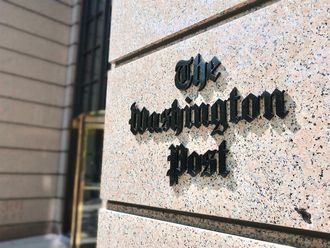For almost a year now, since the Israeli assault on Gaza last December, Turkey's new regional orientations have been subject to fierce verbal attack by Israel and its friends in Washington. The most recent criticism of Turkish foreign policy appeared in an article by Daniel Pipes in Israel's major English daily The Jerusalem Post.
Under the title ‘An Ally No More', Pipes, director of the Middle East Forum and staunch American advocate of Likudist foreign policy, stopped short of calling for Turkey to be punished for its "unfriendly" attitude towards Israel. Caroline Glick, a Jerusalem Post columnist, went further when she wrote: "Ankara already left the Western alliance and became a full member of the Iranian axis".
These two writers and many others have been very open in expressing their anger at Turkish foreign policy under the ruling Justice and Development Party (AKP). Deep bitterness has been particularly expressed at the Turkish decision to exclude Israel from its international military exercise ‘Anatolian Eagle' in October.
Turkish Prime Minister Recep Tayyip Erdogan took most of the brunt when he disclosed the real reason for the decision: "Ankara could not allow fighter jets that had also been used in missions against Palestinians in the Gaza Strip to fly over Turkish airspace." "This sudden and unexpected shift shook to the core Israel's military alignment with Turkey, in place since 1996," Pipes wrote in his Jerusalem Post article.
Display of displeasure
In fact, Ankara's spat with Israel had begun long before the Gaza war. The Israelis' Gaza offensive was the straw that broke the camel's back, triggering a display of displeasure with Israel from the Turkish side. That displeasure was clearly expressed during the World Economic Forum in Davos, Switzerland, when Erdogan vented his anger on Israeli President Shimon Peres.
Resentment in Israel towards Turkey cannot be explained only in terms of souring bilateral relations. What makes Israel particularly jumpy about the shift in Turkey's foreign policy is the effort by Erdogan's government to improve relations with Israel's regional foes, Syria and Iran.
For Israel, cancelling its participation in the ‘Anatolian Eagle' air force exercise was interpreted as a diplomatic setback. Turkey's decision to conduct joint military exercises with Syria while putting its alliance with Israel on ice was even more disturbing for Tel Aviv.
Erdogan's comments on Iran are also distressing for Israel. "The government in Tehran is being treated unfairly," Erdogan said before his most recent state visit to the Islamic Republic. The West, according to the Turkish leader, ought to give up its own nuclear weapons before threatening Iran with sanctions. The Israeli government could have been forgiven for thinking for a moment that this was Hezbollah leader Hassan Nasrallah speaking, rather than the leader of a country that had been often described as Israel's only Muslim ally.
To the chagrin of Israel, Iranian President Mahmoud Ahmadinejad paid a visit to Istanbul last month, where he attended a summit of the Organisation of the Islamic Conference. During the visit, Ahmadinejad stated that he considers the Turkish prime minister as a good friend and a trustworthy neighbour. The warming relationship between the two men made many in Israel wonder if Turkey was supporting Tehran in the dispute over its alleged nuclear ambitions. If that turned out to be the case, it would be the most dramatic shift in the regional balance of power since the 1967 Arab-Israeli war.
Foreign policy shift
Over the past few years, Israel has been concerned about a possible shift in Turkey's foreign policy orientation. Israeli analysts have been trying to assess the impact of Turkey's efforts to regain its status as a regional power in the Middle East on its relationship with Israel. Some speculated that as Ankara proceeded with its endeavours to forge closer ties with its neighbours and assume a leading role in the Middle East, its relationship with Israel would suffer. Few expected, however, that Turkey would have the courage to ditch its alliance with Israel and turn instead to its foes. Should Turkey's relations with Syria and Iran reach that level, Israel's worst nightmare would have come true.
Dr Marwan Kabalan is a lecturer in media and international relations at Damascus University's Faculty of Political Science and Media in Syria.











